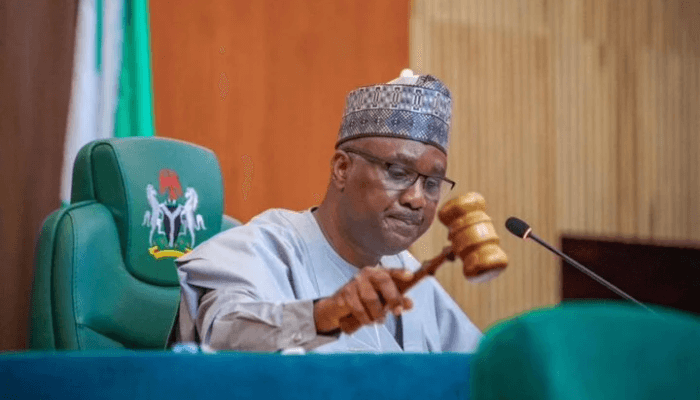The National Assembly has intensified efforts to grant Nigerians living abroad the right to vote in national elections, as the Federal Government deepens its engagement with the diaspora community.
This renewed drive was highlighted at the Nigerian Stakeholders Engagement on Diaspora Governance (NiSEDiG 2025) in Abuja, where lawmakers reaffirmed their commitment to inclusivity and unveiled new digital platforms aimed at strengthening ties with citizens abroad.
Speaking at the event, Speaker of the House of Representatives, Tajudeen Abbas, represented by Patrick Umoh, announced the launch of the Nigerians in Diaspora Response (NiDRes) Application and Website. He described the diaspora voting bill as a bold step toward strengthening democratic participation and ensuring that every Nigerian, regardless of location, contributes to nation-building.
“The 10th House of Representatives regards diaspora engagement as a national priority consistent with its legislative agenda of inclusion, accountability, and economic reforms,” Abbas said.
Tochukwu Chinedu Okere, Chairman of the House Committee on Diaspora, explained that the NiSEDiG 2025 initiative aims to establish a coordinated policy framework integrating institutions, legislation, and technology to enhance diaspora governance.
He added that the newly launched NiDRes App and Website will make it easier for Nigerians abroad to access government services, communicate with embassies, and respond to national issues in real time.
Delivering the keynote address, Abike Dabiri-Erewa, Chairman and CEO of the Nigerians in Diaspora Commission (NiDCOM), highlighted the remarkable progress made in diaspora engagement since the Commission’s establishment six years ago.
She noted that the Nigeria–Diaspora partnership has achieved significant milestones in health, education, agriculture, ICT, transportation, and volunteerism, and emphasized the need to consolidate these gains for national development.
Dabiri-Erewa recalled that the National Diaspora Policy, approved by the Federal Executive Council in April 2021, provides a framework for integrating diaspora participation into national planning. She also cited the Diaspora Data Mapping Portal, launched in June 2021, as a key tool for data-driven policy decisions.
According to her, diaspora remittances remain Nigeria’s largest foreign exchange source, contributing $23.81 billion in 2019, representing about six percent of the nation’s GDP.
She listed several NiDCOM-led initiatives, including the National Diaspora Day (July 25), Nigeria Diaspora Investment Summit (NDIS), National Town Hall Meetings, and the National Diaspora Merit Awards, which collectively foster strong connections between the government and Nigerians abroad.
Dabiri-Erewa, however, identified persistent challenges such as limited funding, inadequate office accommodation, and the need to amend the NiDCOM Act to create a sustainable funding mechanism through diaspora remittance levies.
“Addressing these challenges is critical to maintaining progress and strengthening NiDCOM’s role as a bridge between the government and Nigerians abroad,” she said.
The NiSEDiG 2025 engagement and the NiDRes App launch, she added, symbolize Nigeria’s renewed commitment to building a more structured, inclusive, and technology-driven diaspora engagement system.
The event attracted participants from Nigerians in Diaspora Organisations (NIDO), the Nigerian Immigration Service, academia, youth groups, and various ministries, departments, and agencies, as well as state diaspora focal officers.

